For many people in Quang Tri , Mai Xa village is a familiar place name, one of 65 ancient villages in Minh Linh district, Tan Binh district, ancient Thuan Hoa region, now Gio Mai commune, Gio Linh district, Quang Tri province.
Not only is Mai Xa village a land with a long revolutionary tradition, in this book, it has a broader meaning as the villages of Gio Mai commune, it is also a land that has produced many talented artists. Regarding education, in addition to the famous families and families of studiousness in Quang Tri in the three families Truong, Le, Bui, the village also has Professors - Doctors such as Professor Bui The Vinh, Associate Professors: Bui Trong Ngoan, Bui Manh Hung, Doctors: Bui Minh Tam, Bui Minh Thanh...

Cover of the book "5 literary faces of Mai Xa village"
Regarding literature, many descendants of Mai village and Gio Mai commune have become famous in the literary world. Recently, journalist - writer Trieu Phong compiled the book "5 Literary Faces of Mai Xa Village" - Literature Publishing House, providing readers with more information about the background, career and works of 5 modern Vietnamese writers of Mai village. They are writers Nguyen Khac Thu, Truong Quang De, Ta Nghi Le, Chau La Viet and Bui Phan Thao.
First of all, there is the writer Nguyen Khac Thu, whose maternal hometown is Mai Xa village. He was born in 1921 and died in 1990, belonging to the first class of members of the Vietnam Writers Association , in 1957. Main works: The Battle of Thanh Huong (memoir, 1952); The Date (short story, 1955); Moving Land (novel, 1955); Breaking the Tan Son Nhat Bomb Warehouse (story, 1956); The Death Sentence (novel, 1958); Nguyen Khac Thu Anthology (2022). Together with writer Nguyen Dinh Thi, he won the second prize of the Vietnam Literature and Arts Association in 1952 for the memoir The Battle of Thanh Huong.
According to the "Anthology of Military Writers": "Reading Nguyen Khac Thu, readers feel a talented literary face, broad knowledge, a unique and sharp writing style, and a modern and distinctive personality. It can be said that each work of Nguyen Khac Thu leaves a historical mark in the hearts of readers and in the country's literature" (Trieu Phong).
Poet Pham Ngoc Canh's memoirs in the book about Nguyen Khac Thu give readers a clearer picture of a talented and virtuous man. We feel sorry for him for having to endure the misfortunes that befell his life after his literary glory.
Poet Pham Ngoc Canh, with his respect for literary talents, considered writer Nguyen Khac Thu as the first teacher who guided him in his first steps of writing, considered writer Nguyen Khac Thu, poet Hai Bang (Van Ton) and painter Tran Quoc Tien as the "three vegetable heads" of the literature and arts of the resistance war against the French in the Ba Long war zone.
The works quoted in this book by Nguyen Khac Thu show the dangers of writers - journalists - soldiers, who had to rush into battle, join the heroic fight with the National Defense Army, live with the people in the war zone to have the Thanh Huong Battle that is remembered for its great writings about a battle that inspired soldiers and people; we can understand that they escaped the enemy's bullets when they disguised themselves as woodcutters, passed through enemy bunkers on the highway to bring the newly printed newspaper back to the plains and cities...
The second is teacher, writer, researcher Truong Quang De, son of Mr. Truong Quang Phien, former Chairman of the Resistance Administrative Committee of Quang Tri province during the years of fighting against the French. He was born in 1935, was an education expert in Africa, former head of the foreign language department, Hue University of Education. He composed 6 works in Vietnamese and French, translated and wrote 6 books on philosophy and socio-economics .
Writer Trieu Phong assessed Truong Quang De as an erudite teacher, a fresh literary thinker, a versatile and individual writer. As for poet Bui Phan Thao, Truong Quang De's literary pages are beautiful, full of meaning and affection.
A typical example is the story collection “Ladies of the Bosom in the Time of Troubles”, in which the story is the title of the story collection, tells the lives of young ladies, from well-off, educated families, who, due to the vicissitudes of the times, had a wandering fate, full of hardships. However, most of them overcame it, with will, talent, determination and luck, to tell the beautiful stories of their lives through each page of the book.
The author, with the mindset of an insider, tells the story with a loving voice, writes with sincerity, full of love. Through the pages, each historical period of the homeland, the country, and many regions is recreated. The author's heart and feelings are overflowing behind the words, because that is also the part of his life he has experienced, especially the beautiful days of youth and adulthood when he devoted himself to the common cause of the nation.
The third writer in the book is Ta Nghi Le, member of the Vietnam Writers Association, born in 1951, died in 2008. Main works: Loving a Poet (novel), The Sea Lion and I (story collection), Different Lives (story collection), Bright Skyes (poetry collection), Going Through the Curse, The Day of Return (film script), My Hometown (poetry collection)... In addition to writing and composing poetry, he also participated in acting in films with nearly 20 roles...
In daily life, poet Ta Nghi Le lives a gentle, friendly life, wholeheartedly loves his homeland Quang Tri, and is loved by everyone. He is one of the editors of the magazine "Love of the Countryside" which collects works of Quang Tri people living far away from home, published at the end of the year as a meaningful spring gift to each other. Ta Nghi Le's writing is gentle and affectionate; while Ta Nghi Le's poetry is simple and sincere like his personality. He loves his homeland passionately:
“Is there a place like my hometown/ white cemetery on each white sandbank/ rice grains and sweet potatoes in the hot Southern season/ holding a bowl of rice to eat, why does my heart feel so bitter”...
People living far from home in Quang Tri still remember his poems set to music by Nguyen Tat Tung: "Where my first love was lost" or "The storm has passed and the squash blossoms are yellow again", bringing back nostalgic feelings of youth and a heartache for the homeland during each storm and flood season...
The fourth writer is Chau La Viet, born in 1952, a member of the Vietnam Writers Association. He is the son of musician Hoang Thi Tho and singer, Meritorious Artist Tan Nhan, famous for the song “Xa Khoi” by Nguyen Tai Tue. He joined the army in 1969, wrote for newspapers, wrote prose, and wrote poetry under many pen names.
After 1975, he studied at Hanoi Pedagogical University and devoted himself to writing and journalism. He published more than 30 works of poetry, short stories, plays, memoirs, etc., and was awarded many prestigious literary awards by the General Department of Politics, Ministry of National Defense.
As a writer who writes well, writes evenly, has sharp thinking but is also full of love and affection on every page, his writing, like his life, is full of lyricism but still very determined and clear. In particular, his writing is full of material, written in an attractive way, attracting readers from beginning to end. As writer Do Chu said, that is the literary nature, the writing profession chose him as a matter of course: "Chau La Viet is truly a child of the literary family. Having the literary nature within him, it cannot be otherwise... Write like your mother used to sing. Hold each word, release each sentence, hurt like a silkworm's heart and noble like a silkworm's silk. Be passionate to the extreme and miss him to the extreme"...
Besides his chivalry, Chau La Viet is also a person of great gratitude. He devoted his love to his family, his comrades, his childhood friends... through collecting writings, compiling works for his friends and comrades, typically writing an anthology of writer Nguyen Khac Thu, his beloved uncle. According to writer Tran Hoang Thien Kim: "For Chau La Viet, writing and composing poetry is just an excuse to do good deeds, to repay the life that has taken care of and protected him, to repay his parents and his mother's singing that nurtured his difficult childhood through many storms so that he can have today a leisurely, carefree, and free life"...
The fifth writer in the book is Bui Phan Thao, born in 1963, a member of the Vietnam Writers Association, currently living in Ho Chi Minh City. To date, he has published nearly 10 books including poetry, short stories, memoirs, literary criticism, and received the Ho Chi Minh City Writers Association Award in 2022 and the 28th Mai Vang Award of the Nguoi Lao Dong newspaper for literature and art for the long poem "The Smokes of Heaven".
Although he has been away from home for decades, Bui Phan Thao still has a heavy heart for his hometown Quang Tri, always keeping the character of a Quang Tri native: sincere, devoted, always accepting tolerance as a way of life. Bui Phan Thao's poetry is a perception of life, a contemplation hidden between words. According to poet - critic Nhat Chieu: "Bui Phan Thao has sought a kind of poetry that is genuine. It is tolerance. Poetry is tolerant, so poetry is the voice of the future. Poetry has urged Bui Phan Thao like a bee urges flowers, the ephemera of life".
As for journalist - musician Nguyen Thanh Binh: "Bui Phan Thao quietly chose for himself a quiet moment, not to contemplate life, but to silently write lyrical lines of life experience as an act of purifying his soul; to free himself from the habits and miseries of daily life, to answer for himself many lingering questions expressed in a very unique lyrical language"...
Nguyen Hoang Hoa
Source: https://baoquangtri.vn/5-guong-mat-van-chuong-lang-mai-xa-188716.htm



![[Photo] Panorama of the cable-stayed bridge, the final bottleneck of the Ben Luc-Long Thanh expressway](https://vphoto.vietnam.vn/thumb/1200x675/vietnam/resource/IMAGE/2025/9/30/391fdf21025541d6b2f092e49a17243f)
![[Photo] President Luong Cuong receives President of the Cuban National Assembly Esteban Lazo Hernandez](https://vphoto.vietnam.vn/thumb/1200x675/vietnam/resource/IMAGE/2025/9/30/4d38932911c24f6ea1936252bd5427fa)
![[Photo] The 1st Congress of Phu Tho Provincial Party Committee, term 2025-2030](https://vphoto.vietnam.vn/thumb/1200x675/vietnam/resource/IMAGE/2025/9/30/1507da06216649bba8a1ce6251816820)
![[Photo] Solemn opening of the 12th Military Party Congress for the 2025-2030 term](https://vphoto.vietnam.vn/thumb/1200x675/vietnam/resource/IMAGE/2025/9/30/2cd383b3130d41a1a4b5ace0d5eb989d)
![[Photo] General Secretary To Lam, Secretary of the Central Military Commission attends the 12th Party Congress of the Army](https://vphoto.vietnam.vn/thumb/1200x675/vietnam/resource/IMAGE/2025/9/30/9b63aaa37ddb472ead84e3870a8ae825)


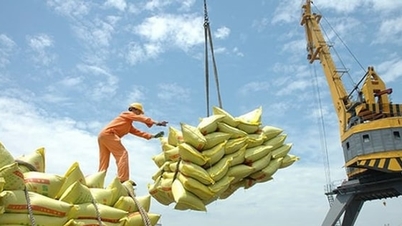



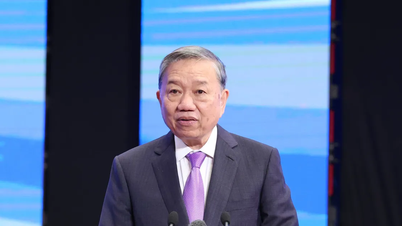

![[Photo] National Assembly Chairman Tran Thanh Man chairs the 8th Conference of full-time National Assembly deputies](https://vphoto.vietnam.vn/thumb/402x226/vietnam/resource/IMAGE/2025/9/29/2c21459bc38d44ffaacd679ab9a0477c)

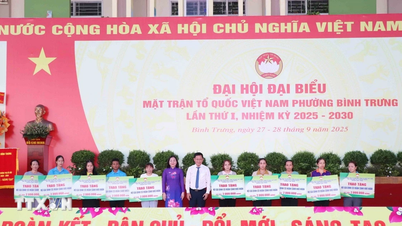





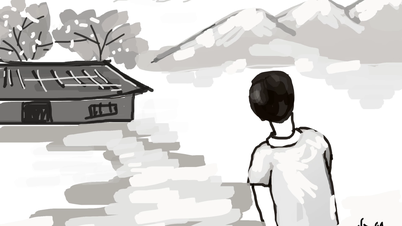





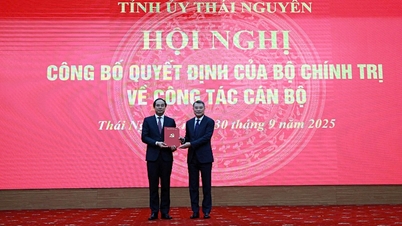



















































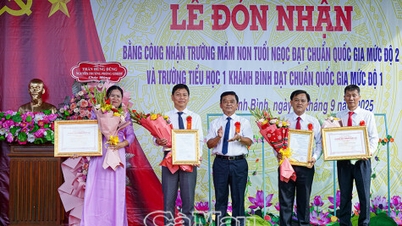




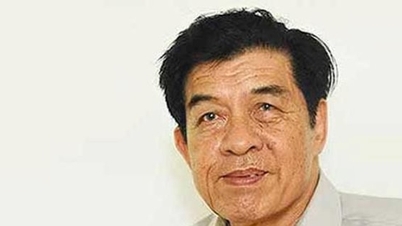











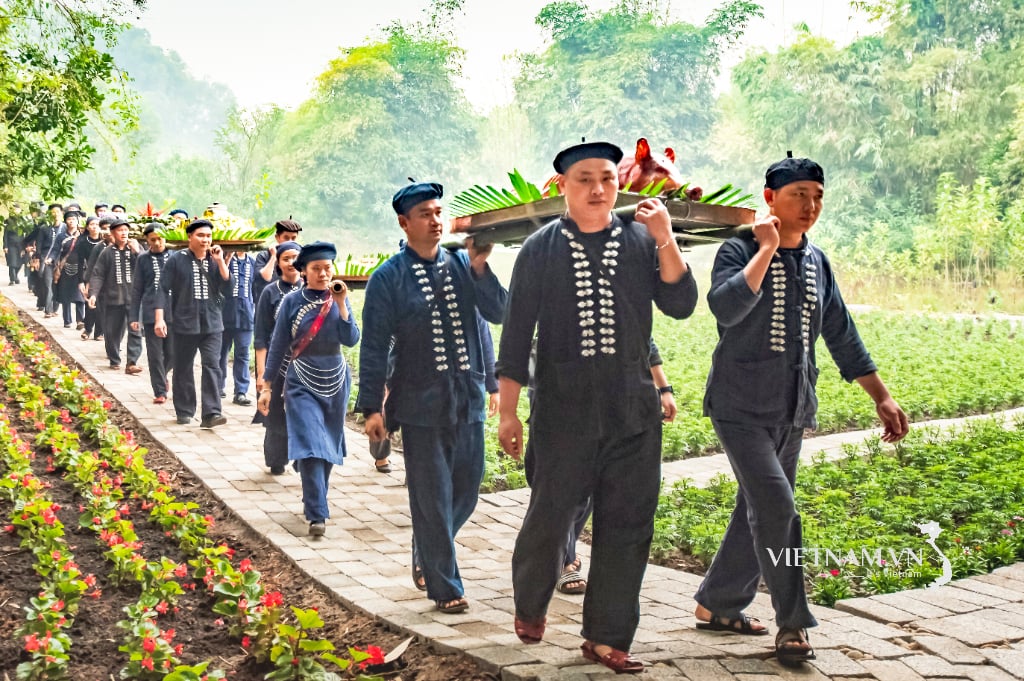


Comment (0)